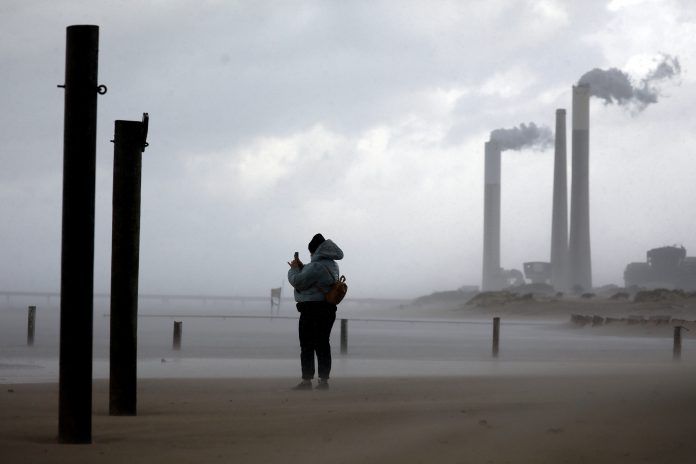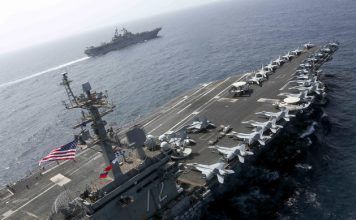
By Rami Ayyub and Ari Rabinovitch
TEL AVIV, March 3 (Reuters) – Israel accused Iran on Wednesday of being linked to a recent oil spill off its shores that caused major ecological damage, calling the incident environmental terrorism.
The spill was caused by an oil tanker that was carrying pirated cargo from Iran to Syria last month, Israeli Environmental Protection Minister Gila Gamliel said.
The vessel sailed through the Persian Gulf and the Red Sea without radio contact, switching its tracking devices back on before passing through Egypt’s Suez Canal, Gamliel told reporters.
It turned the devices off again before entering Israeli waters in the eastern Mediterranean, and dropped oil into the sea between Feb. 1-2, she said, naming the vessel as the Panama-flagged oil tanker Emerald.
“Iran is (conducting) terrorism by damaging the environment, and (when) Iran is damaging the environment it isn’t just hurting the state of Israel,” Gamliel said.
There was no immediate comment from Iran.
The accusation is the second in a week in which Israel has blamed its long-time enemy Iran of wrongdoing at sea.
Prime Minister Benjamin Netanyahu blamed Tehran for an explosion aboard an Israeli-owned ship in the Gulf of Oman last week, an accusation rejected by Tehran.
Tensions have risen in the Persian Gulf region since the United States reimposed sanctions on Iran in 2018 after then-President Donald Trump withdrew Washington from a 2015 nuclear deal between Iran and major powers.
ECOLOGICAL DISASTER
The oil spill blackened beaches up and down the Israeli coast, and clumps of sticky black tar have washed up on the shores of south Lebanon and the Gaza Strip, as well.
Environmental groups are calling it an ecological disaster that could take years to clean up.
Gamliel said the vessel was “owned and operated by a Libyan”, without identifying a person or company.
Libya’s state-owned shipping firm, the General National Maritime Transport Company, said it had owned the vessel but sold it at an auction in December.
The vessel was purchased by Emerald Marine Ltd, a company based in the Marshall Islands, according to the shipping database Equasis. Reuters was not immediately able to reach the company for comment.
Gamliel said the vessel turned its tracking devices back on again upon reaching Syria on Feb. 3, where she said it unloaded crude oil. It then returned to Iran, where it is currently anchored, she said.
Refinitiv ship tracking data showed the vessel reported a destination of Sohar in Oman, across the Gulf of Oman from Iran, on Jan. 20, meaning it was around Iran‘s coast at that time.
The ship tracking data did not show any destinations in Iran, though it is common for vessels to conceal their movements there.
The vessel reported its position after passing through the Suez Canal on Feb. 1, Refinitiv data showed. It next reported its position with a destination of Mersin in Turkey on Feb. 3, showing a gap between Feb. 1 and 3.
The vessel did not report any destinations in Syria, though it is also common for ships to conceal movements there.
An international convention requires merchant ships to have a satellite tracking device on board when travelling at sea. But a ship’s captain has the discretion to switch the transponder off under certain circumstances, enabling them to avoid detection.
The Israeli environmental protection ministry said it had collected strong “circumstantial evidence” that this was the ship behind the spill, though it did not have “forensic evidence”. It said it also ruled out any other source.
(Additional reporting by Reuters Libya newsroom, Jonathan Saul in London and Marianna Parraga in Mexico City Editing by Mark Heinrich, Alexandra Hudson and Jonathan Oatis)
[contact-form][contact-field label=”Name” type=”name”][contact-field label=”Email” type=”email”][/contact-form]







